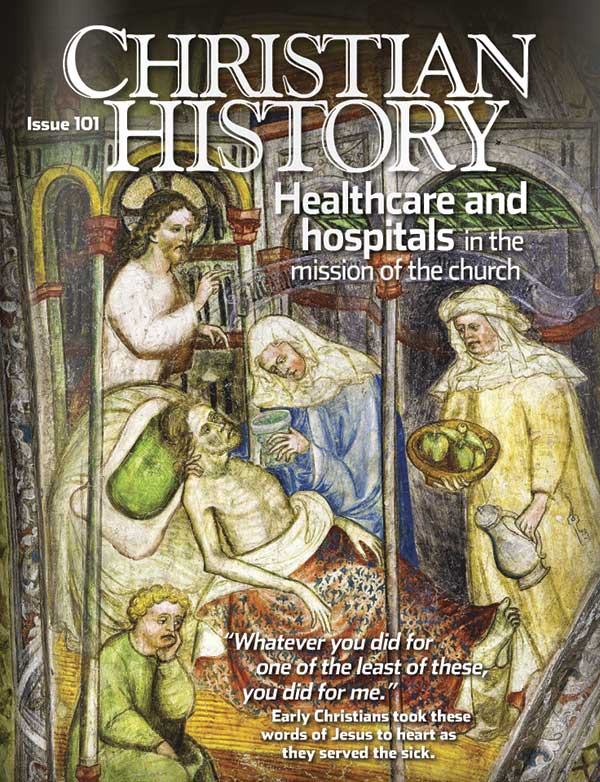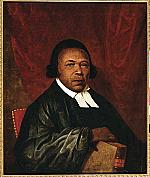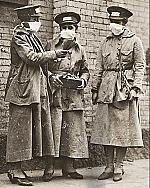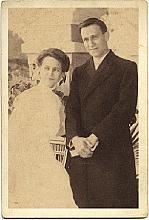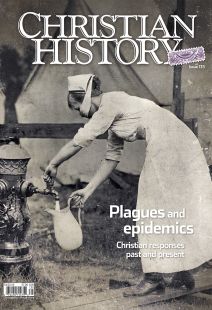Plagues and epidemics: Recommended resources 135
Books
To better understand plague during the time of the early church, look at Darrel Amundsen, Medicine, Society, and Faith in the Ancient and Medieval Worlds (1996); Andrew Daunton-Fear, Healing in the Early Church (2009); Susan Holman, The Hungry Are Dying (2001); Lester Little, ed., Plague and the End of Antiquity (2006); William Rosen, Justinian’s Flea (2008); Gary Ferngren, Medicine and Health Care in Early Christianity (2009); and Kyle Harper, The Fate of Rome (2017).
To learn more about medieval plagues and the changes they wrought in society, read Philip Ziegler, The Black Death (1969); William Bowsky, ed., The Black Death (1971); Barbara Tuchman, A Distant Mirror (1978); David Herlihy, The Black Death and the Transformation of the West (1997); Norman Cantor, In the Wake of the Plague (2001); Ole Jørgen Benedictow, The Black Death, 1346–1353 (2004); Carole Rawcliffe, Leprosy in Medieval England (2006); and Justin Stearns, Infectious Ideas (2011).
For plague in the Reformation era, see Paul Slack, The Impact of Plague in Tudor and Stuart England (1991); A. Lynn Martin, Jesuit Accounts of Epidemic Disease in the Sixteenth Century (1996); Samuel Cohn, Cultures of Plague (2009); Jane Stevens Crashaw, Plague Hospitals (2012); Kristy Wilson Bowers, Plague and Public Health in Early Modern Seville (2013); and Dean Phillip Bell, ed., Plague in the Early Modern World (2019).
To explore plague in the modern era, look at John Duffy, Epidemics in Colonial America (1953); Carlo Cipolla, Faith, Reason, and the Plague in Seventeenth-Century Tuscany (1979); William Coleman, Death Is a Social Disease (1982); Charles Rosenberg, The Cholera Years (1987); J. H. Powell, Bring Out Your Dead (1993); Elizabeth Fenn, Pox Americana (2001); John Barry, The Great Influenza (2004); David Oshinsky, Polio (2005); Tony Williams, The Pox and the Covenant (2010); Michael Willrich, Pox: An American History (2011); and Stephen Coss, The Fever of 1721 (2016).
Christian History issues
Read these related issues of Christian History on our website www.christianhistorymagazine.org. Some are still available for purchase.
• 4: Zwingli
• 20: Charles Finney
• 30: Women in the Medieval Church
• 49: Everyday Faith in the Middle Ages
• 95: J. S. Bach
• 101: Healthcare and Hospitals
• 115: Luther
• 116: 25 Writings
• 127 Medieval Lay Mystics
• 131: Women of the Reformation
• 134: Science and Technology
Videos from Vision Video
Videos on the theme of this issue include: The Fanny Crosby Story; Molokai: The Story of Father Damien; Morning Star of Wittenberg: The Life of Katie Luther; Mother Teresa; and Pioneers of the Spirit: Julian of Norwich.
Websites
A number of websites discuss epidemics generally throughout history or explore specific epidemics. Visual Capitalist has a timeline of history’s deadliest pandemics, and Healthline lists some of the worst epidemics specifically in US history. There is some information on epidemics in colonial America at the Tully Historical Society and a full documentary on the 1918 flu at PBS.
The American Social History Project links to online exhibits and primary sources about many US epidemics. A very lengthy and comprehensive bibliography about the science and history of pandemics is hosted by Ouachita Baptist University with a similar one on public health at the University of Amsterdam.
Find many of the primary sources from church history we’ve discussed at usual sources online such as the Christian Classics Ethereal Library, Project Gutenberg, the Internet History Sourcebooks, and the Post-Reformation Digital Library. You may appreciate reading Luther’s complete Whether One May Flee from a Deadly Plague at the news website of the Lutheran Church—Missouri Synod. CH
By The editors
[Christian History originally published this article in Christian History Issue #135 in 2020]
Next articles
Our scattered leaves
We end with another reflection from a member of our staff about how our current moment compares to Christian history
Edwin Woodruff Tait“The Lord brought all this dying”
"Some of our friends are dying others flying" from yellow fever
Barton Price“The sickness of others”
The flu pandemic of 1918–1919 swept through crowded neighborhoods.
Janine Giordano DrakeE. Stanley Jones: Did you know?
From a poor Baltimore childhood to friendship with Gandhi, E. Stanley Jones had a remarkable life
Robert G. Tuttle Jr.



